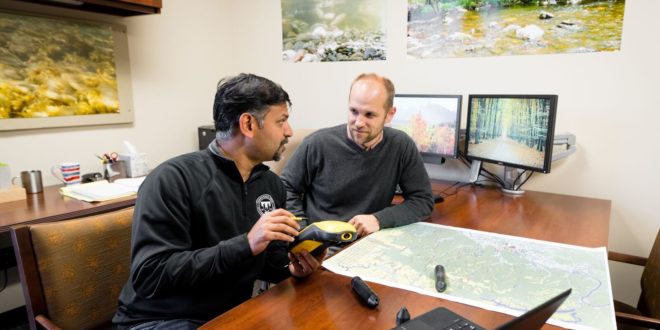Tennessee Tech will use nearly $2 million in grant funding to study nutrient removal abilities of wetlands in Tennessee and Kentucky.
Associate Professor of Biology Dr. Justin Murdock said the grant money will benefit the school by expanding collaboration with other universities and organizations.
“It’s allowing collaboration between all of our universities as well as the Nature Conservatory and the USDA in order to basically expand our knowledge of what’s going on in these agricultural watersheds,” Murdock said. “It’s helping us out tremendously in both the research we’re able to do and the information we’re able to gain that Tennessee Tech has been able to put out there, but also into training future scientists and students.”
Tech announced Tuesday it received the grant from the USDA’s Natural Resource Conservation Service.
Murdock said the grant funding will especially help four Tech students by fully funding their PhD programs while benefiting undergrad students as well.
“It’s also providing substantial amounts of research experience for undergraduates… to have an opportunity to go out and be able to learn both field techniques and laboratory techniques and analyzing this data,” Murdock said, “and understanding exactly how we go about solving some big problems eutrofication and nutrient-loading that are leading to things like the Gulf of Mexico that’s becoming more and more of a problem.”
Murdock said the study involves the USDA buying land from farmers in Tennessee and Kentucky wetland areas and rehabilitating them back to their natural state.
“By understanding how long it takes these easements to start acting like they used to and being able to improve the water quality, and what conditions provide the best nutrient retention,” Murdock said, “the USDA is able to better manage this program and understand how long do we need to pay farmers to keep into the easement and what type of land management on these easements best promotes improvement of water quality.”
Murdock said Tech has partnered with the likes of Murray State University in Kentucky and the University of Missouri – Columbia for the study. The four-year investigation will also include Tech’s Civil Engineering program with the assistance of Associate Professor Alfred Kalyanapu.
 News Talk 94.1/AM 1600 Where The Upper Cumberland Talks
News Talk 94.1/AM 1600 Where The Upper Cumberland Talks








